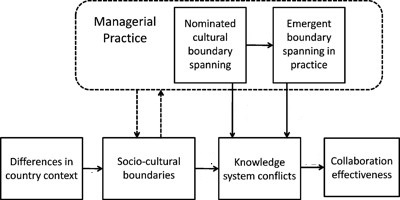The Role of Socially Responsive Manager as a Boundary Mediator
The growing emphasis on social issues has created a new significance for the role of boundary mediator. Just as a fluid system in physical science has boundary conditions, so does a dynamic organization have them. In the evolution to a more socially responsive managerial role two relatively dormant sub roles have emerged. These are in points of interface with its environment, and management’s job is to mediate or resolve these boundary interfaces in order to keep its organization effective. These are the roles of trustee and boundary mediator.
Its role is to achieve organizational objectives while supporting claimant’s objectives also.

Figure: System relationship of the boundary mediation role of a manager
As shown in above figure, managers direct an open system, not a closed one. They operate on the boundary between an organization and its external environment, receiving inputs from the environment as well as the organization and, in turn, transmitting outputs of both. Managers are mediators rather than controllers because they have no formal authority which they can apply to the external social system. They cannot tell society what to do, no matter how great the needs of their organization, because the external system owes no direct allegiance to their organization. Since they cannot tell, their next best choice is to sell; but at any salesperson knows, salesmanship is not successful in the long run unless the product sold is a desirable one. This means that managers as boundary mediators are required to conduct their organization’s business in a way which meets social needs along with the firm’s internal needs.















